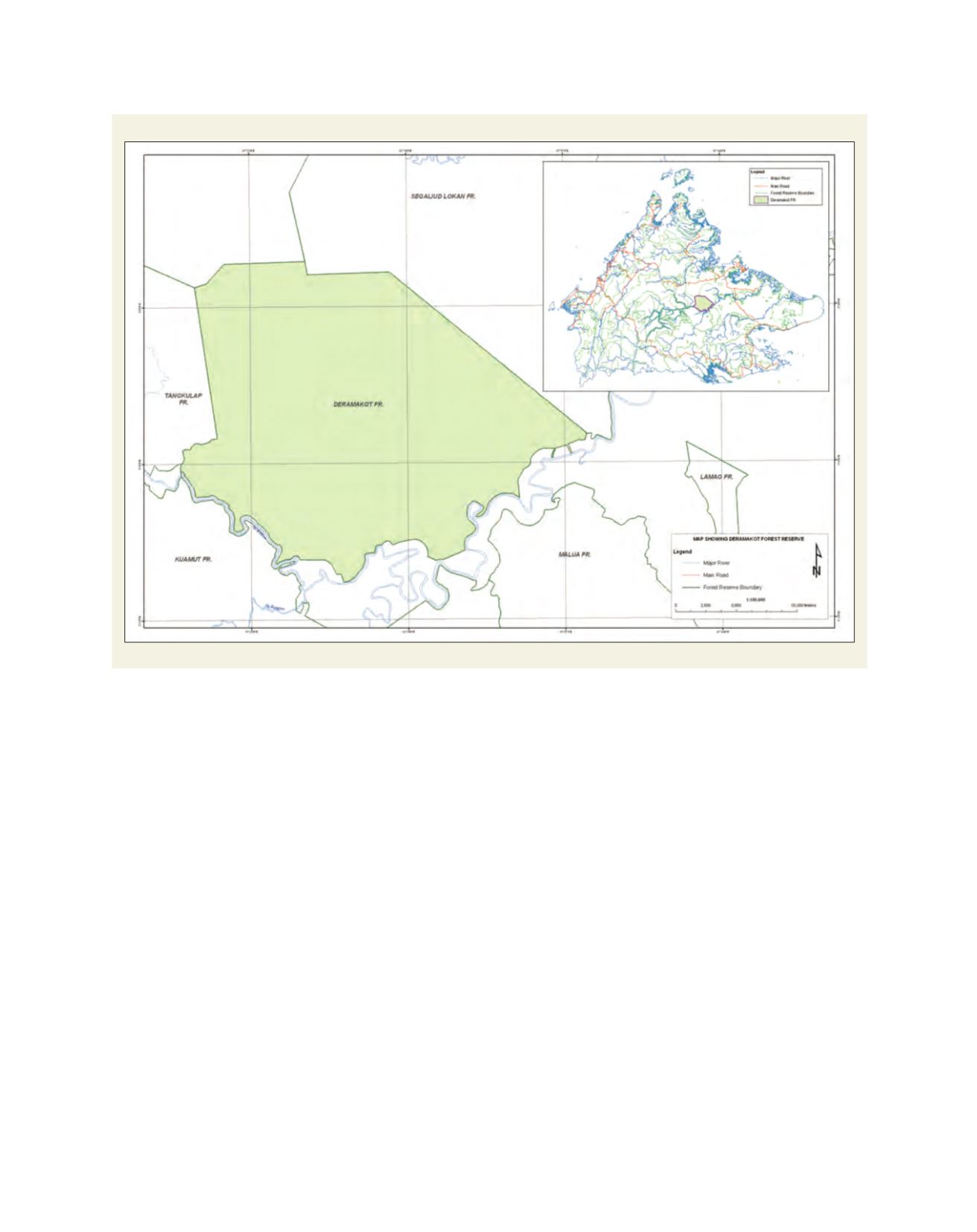

[
] 278
Currently under its second FMP covering 2005-2014,
this document supports the production of high-value
timber and enables improved growing stock with a
high degree of tree species diversity. The FMP is
implemented by the Department under the supervi-
sion of its Deramakot District Forestry Officer and
contractors. Guided by the FMP, the Department
prepares an annual work plan that lists the necessary
strategies for a given year. This includes prepar-
ing a Comprehensive Harvest Plan (CHP) that
guides sustainable logging, vital for Reduced Impact
Logging (RIL). Timber extracted uses RIL methods
that minimize damage to potential crop trees, soil
and the regeneration process. RIL guidelines dictate
that the minimum cutting limit is maintained at
60 cm DBH (diameter at breast height), while the
maximum limit is fixed at 120 cm DBH. The CHP
is an essential primary field reference and roadmap
and is used to ensure sufficient monitoring, including
when harvesting is over, by putting in place mitiga-
tion measures to promote regeneration of the logged
area. The CHP is so detailed that it even includes the
layout for feeder roads and skid trails to minimize
disturbance to soil.
as the first natural tropical rainforest in the world to be certi-
fied under the Forest Stewardship Council (FSC), an accolade
it earned in July 1997. Through a focused vision, Deramakot
remains the oldest tropical rainforest in the world. While it
seemed a mammoth task over two decades ago, the Department
is, with strong support from the Sabah State Government,
currently replicating its Deramakot model to cover other forest
reserves in Sabah. This process started in September 1997 when
the Sabah State Government signed agreements with 10 partners
to manage commercial and natural forests based on sustainable
forest management (SFM) principles. The 10 pioneer private
companies that signed Sustainable Forest Management Licence
Agreements were allocated some 1.8 million hectares in total,
with each given 100 years to manage their sites based on the
Deramakot model. While not all of the original licensees were
able to sustainably manage their sites, causing their agreements
to be cancelled, there are currently 25 long-term licensees in
Sabah. The Department remains vigilant on how these licen-
sees manage forests, and those unable to deliver risk losing the
licensed areas allocated to them.
At Deramakot, the Forest Management Plan (FMP) sets
management standards and is deemed workable only if stake-
holders are fully consulted. This includes input from local
communities, non-governmental organizations and researchers.
Deramakot Forest Reserve
Source: Sabah Forestry Department
















